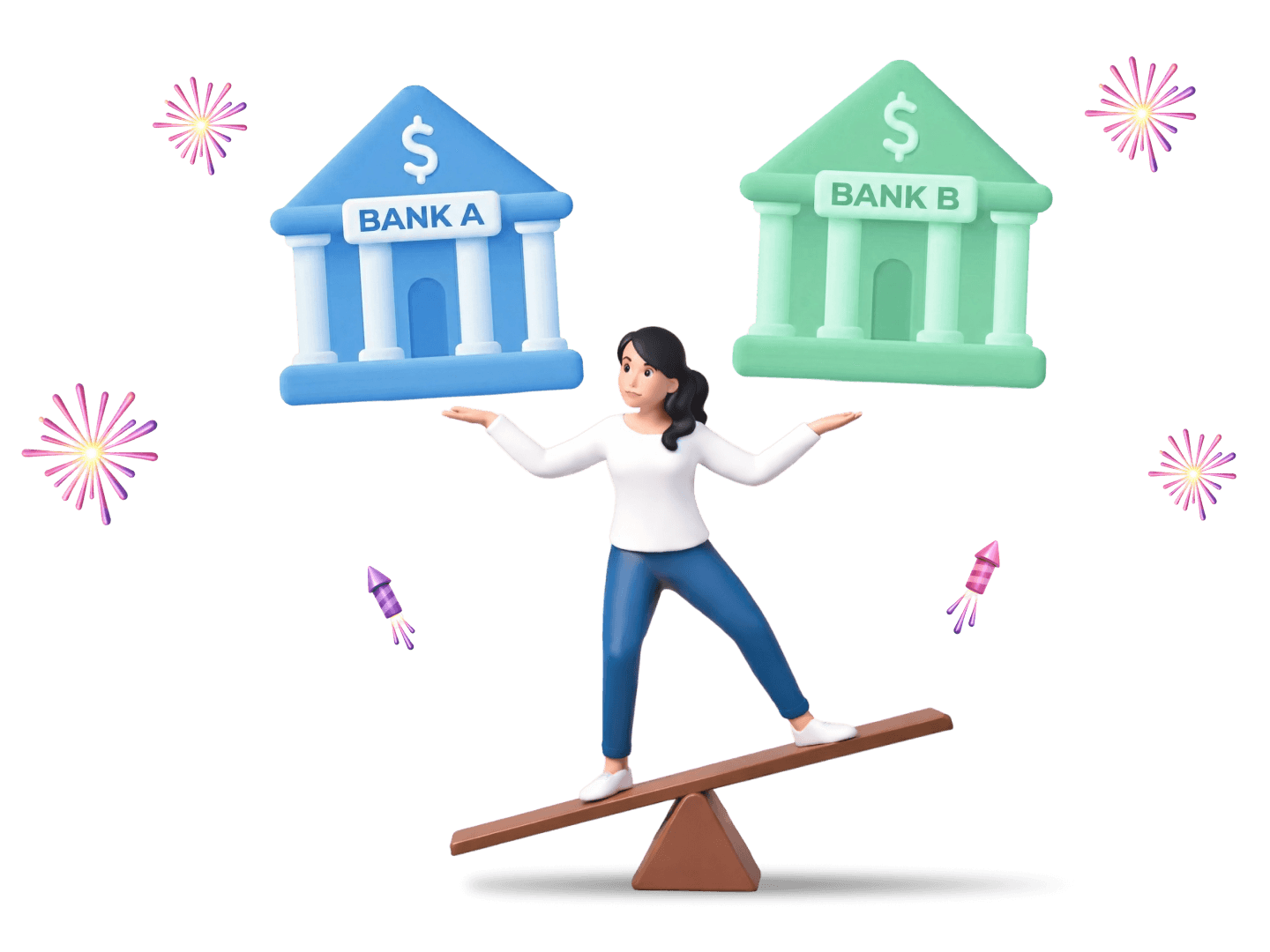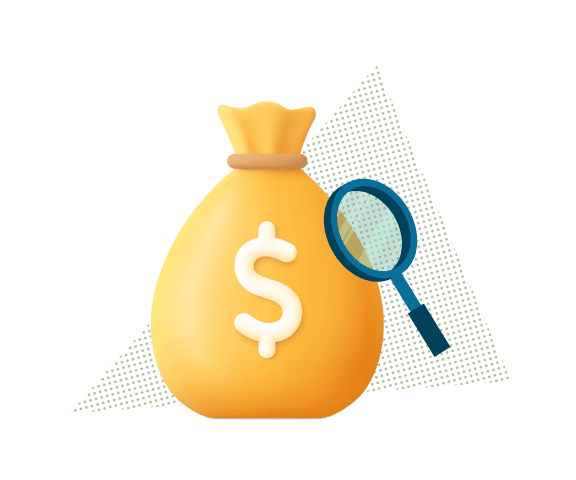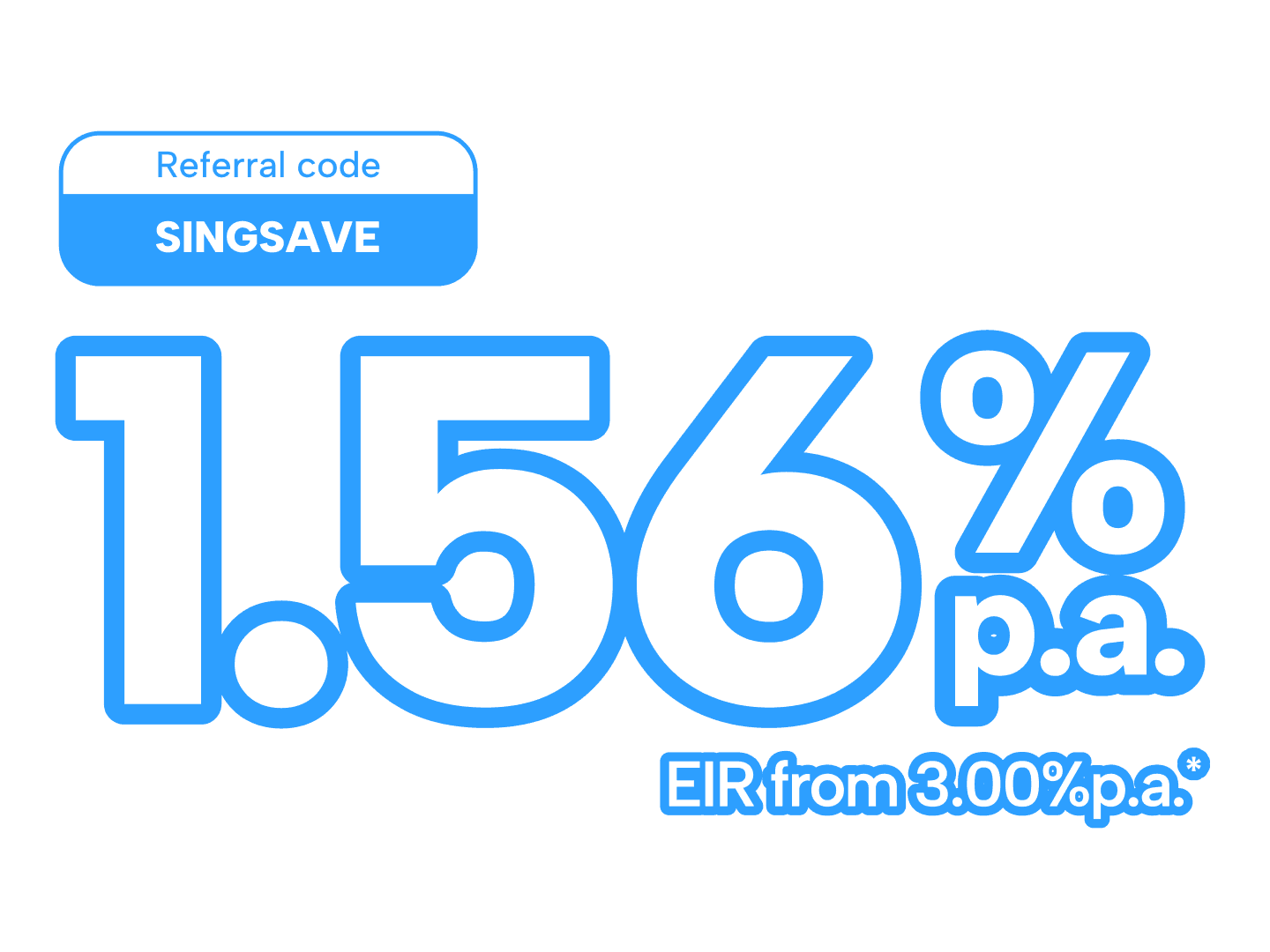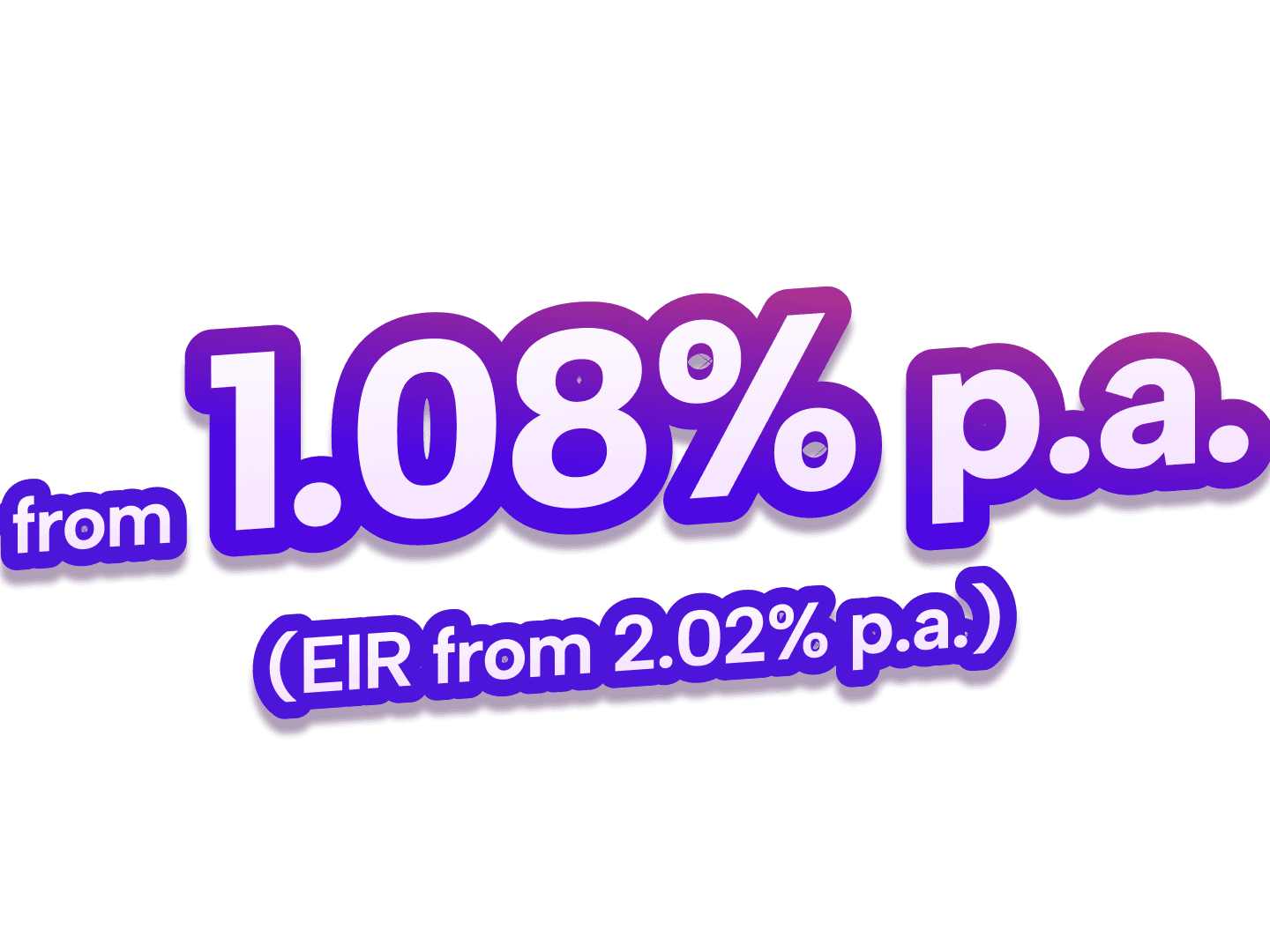Understanding Debt Settlement in Singapore: What You Should Know
Updated: 12 Dec 2025
Written bySingSaver Team
Team
The information on this page is for educational and informational purposes only and should not be considered financial or investment advice. While we review and compare financial products to help you find the best options, we do not provide personalised recommendations or investment advisory services. Always do your own research or consult a licensed financial professional before making any financial decisions.
Debt settlement might sound like a quick fix, but it comes with long-term trade-offs. Here, we’ll explore everything about settling your debts, from what it means to what you should be doing to make it work for you.
It’s also important to situate debt settlement in the local context, which is very different from how debts are settled in Western countries. Here, debt settlement is typically handled through informal negotiations or licensed credit counselling agencies, and it’s mainly reserved for serious financial hardship involving unsecured debts.
SingSaver Personal Loans Cashback Offer
Enjoy interest rates as low as 1.08% p.a. (EIR from 2.09% p.a.) and up to S$4,900 in cashback when you apply for a personal loan via SingSaver. Valid till 1 March 2026. T&Cs apply.
What settling your debts actually means
Debt settlement refers to negotiating with creditors to repay less than the total amount owed. In Singapore, this can be done informally — directly between borrower and lender — or through third-party credit counselling services.
It’s important to differentiate between debt settlement, debt restructuring, and debt consolidation. Debt restructuring involves modifying the terms of your loan (like extending tenure), while debt consolidation combines multiple loans into a single monthly repayment. Debt settlement, on the other hand, means you’re proposing to pay off your debt in part — often a lump sum that’s less than the full outstanding balance.
This approach typically applies to unsecured debts such as personal loans and credit cards, and is usually considered only when the borrower is in significant financial distress.
Support for low-income families is available, don’t let yourself remain unaware
Facing serious financial difficulty? Learn about the support options tailored for low-income households and take the first step towards stability.
How the settlement process works in Singapore
Debt settlement in Singapore can take one of two main paths: informal negotiation or help from a licensed credit counselling agency.
One trusted route is through Credit Counselling Singapore (CCS), a non-profit organisation that works with banks to create structured repayment plans. These may include lower interest rates or waivers of late fees, making it easier for individuals to get back on track without declaring bankruptcy.
Alternatively, borrowers can negotiate directly with creditors — particularly if they’re able to offer a lump sum payment. For instance, someone with S$10,000 in outstanding debt might propose to settle it with S$6,500 in cash. Banks may consider accepting between 60 to 80 percent of the balance owed, depending on the situation.
It’s important to note that this is not the same as the Debt Repayment Scheme (DRS), a court-supervised solution for those with unsecured debts under S$150,000. Settlements usually require proof of hardship — such as job loss, illness, or family emergencies — and can take several months to process.
Should you consider settling your debts?
Debt settlement offers some clear benefits, but also comes with important drawbacks.
On the plus side, it may significantly reduce the amount you owe and help you avoid legal proceedings or bankruptcy. This can be a lifeline if you're already in deep financial difficulty and struggling to make even the minimum repayments.
But it’s not without downsides. Not all creditors will agree to a settlement, and even if they do, it could affect your credit score for years. Settling a debt signals to future lenders that you didn’t pay the full amount — potentially reducing your borrowing power.
In the U.S., settled debts can sometimes trigger tax obligations, though this is not common in Singapore. For those who qualify, schemes like the DRS may offer a more structured and transparent path forward.
Summary: Key points about debt settlement |
|
⚡SingSaver x UOB Personal Loan Flash Deal⚡
Get affordable interest rates from 1.00% p.a. (EIR from 1.93% p.a.) plus up to S$1,900 in cashback and rewards when you apply for a UOB Personal Loan via SingSaver. Valid till 1 March 2026. T&Cs apply.
What debt settlement does to your credit report
Yes, settling debt can harm your credit score in Singapore.
When you settle some debt, but not the full amount, it is reflected on your Credit Bureau Singapore (CBS) report. As you did not settle everything, CBS will typically lower your credit grade to a D or F. This downgrade can stay on your report for several years. It’ll affect your ability to get new credit cards, home loans, or personal loans.
If you've already defaulted before entering settlement discussions, your credit score may already be impaired. But even a formal settlement that prevents further damage still comes with long-term visibility to future lenders.
How to pick a legitimate debt settlement company
In Singapore, debt settlement services are not as common or regulated as they are overseas. While some private “debt consultants” exist, borrowers should proceed with caution.
Go for non-profit or government-recognised options, which are much more trustworthy, especially in Singapore. They are guided by public interest and backed by financial institutions and regulated to provide impartial, transparent support. On the practical side, they don’t charge high upfront fees, make unrealistic promises, or pressure borrowers into decisions. Instead, they work with banks to create fair, structured repayment plans based on your actual financial situation — ensuring you’re not exploited during a vulnerable time.
1. Research before committing
Always check for reviews and confirm the company is officially recognised. CCS is a safe place to start. Avoid firms that are not registered or lack a formal track record.
2. Be wary of red flags
Avoid any service that charges high upfront fees, promises to eliminate most of your debt, or pressures you to act fast. There are no guarantees in debt settlement, and aggressive marketing is often a sign of a scam.
3. Start with a no-obligation consultation
If the company is credible, they should offer a free initial session to understand your situation. Use this call to ask about costs, the settlement process, and whether they’ve successfully negotiated with your specific creditors before.
⚡SingSaver x Trust Personal Loan Flash Deal⚡
Enjoy low interest rates from 1.56% p.a. (EIR from 3.00% p.a.) plus up to S$1,750 in cashback and rewards when you sign up for Trust Bank Personal Loan via SingSaver. Plus, receive a S$10 FairPrice E-Voucher from Trust when you sign up with the referral code SINGSAVE. Valid till 1 March 2026. T&Cs apply.
Can you handle settlement negotiations yourself?
Yes — you can approach banks directly to discuss repayment plans or propose a reduced lump sum payment. Be prepared to explain your situation with supporting documents, such as medical bills or termination letters.
Most banks are more open to negotiation if you’ve already missed payments or submitted evidence of financial hardship. However, the process takes persistence, follow-ups, and patience. Always ensure you get any agreed settlement terms in writing before making payment.
What are the other options besides settling?
Debt settlement isn’t the only way to manage financial distress. Here are some structured alternatives Singaporeans can consider.
Credit counselling
Organisations like CCS offer the Debt Management Programme (DMP), which consolidates your unsecured loans into a single affordable monthly repayment. This doesn’t involve writing off debt but makes it more manageable by potentially lowering interest and removing late fees.
Debt consolidation loans
If your credit score is still healthy, you may qualify for a Debt Consolidation Plan (DCP) — a scheme regulated by MAS that merges all unsecured debt into one loan. It's open to Singaporeans and PRs earning between S$20,000 and S$120,000 annually, with net assets under S$2 million. Banks like DBS, OCBC, and Standard Chartered offer DCPs with lower interest rates than credit cards, but you’ll need discipline to repay consistently.
Declaring bankruptcy
As a last resort, individuals owing over S$15,000 in unsecured debt can file for bankruptcy under Singapore law. This involves court proceedings, restrictions on travel and employment, and the involvement of an Official Assignee who oversees your finances. Bankruptcy status remains on your credit report for five to seven years and can severely limit financial freedom. It’s more severe than the DRS and should only be considered when all other options are exhausted.
What is the Debt Repayment Scheme (DRS)?
The Debt Repayment Scheme (DRS) is a government-backed alternative to bankruptcy for those with unsecured debts below S$150,000. Managed by the Official Assignee under the Ministry of Law, it allows eligible individuals to repay their debts in full over five years.
To qualify, you’ll need to pass a means test and file a statutory declaration of your finances. Once enrolled, creditors are barred from taking legal action against you. The DRS has a less severe impact on your credit profile compared to bankruptcy and offers a structured, court-supervised path to becoming debt-free.
⚡SingSaver x GXS FlexiLoan Flash Deal⚡
Get affordable interest rates from 1.08% p.a. (EIR from 2.02% p.a.) plus up to S$1,700 Cashback when you apply for GXS FlexiLoan via SingSaver. Plus, for a limited time only, get 1.80% off your interest rate (awarded in the form of cashback) when you apply for a S$10,000 loan with a 12-month tenure with the code SSDEAL. Valid till 1 March 2026. T&Cs apply.
-
DBS Bank. (2024, August 30). Debt repayment programmes in Singapore. https://www.dbs.com.sg/personal/articles/nav/budget-spend/debt-repayment-programmes-in-singapore
-
Credit Counselling Singapore. (n.d.). Debt Management Programme (DMP). Retrieved April 14, 2025, from https://ccs.org.sg/consumer/dmp/
SingSaver’s writers rely on reputable sources such as government agencies, regulatory bodies, financial institutions and local experts to produce accurate, timely and useful content. Every article is reviewed to ensure it aligns with our editorial standards and provides readers with clear, trustworthy guidance for making informed financial decisions in Singapore.
About the author
SingSaver Team
At SingSaver, we make personal finance accessible with easy to understand personal finance reads, tools and money hacks that simplify all of life’s financial decisions for you.



